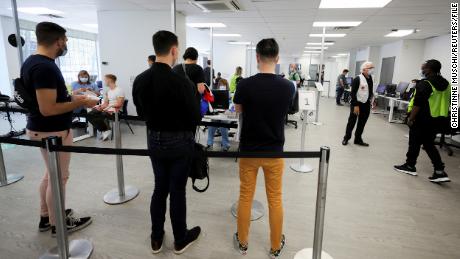But as medical professionals, we also understand the fear that comes with encountering patients who have highly infectious diseases. Eric has been a frontline physician since day one of the Covid-19 pandemic and is now a physician working with patients with monkeypox. Tom has worked with patients in the intensive care unit during the Delta Covid-19 surge. We understand the real fear of contracting viruses at work, and — as a married couple — we recognize the concern about bringing disease home to…
Click Here to Read the Full Original Article at CNN.com – RSS Channel – HP Hero…

